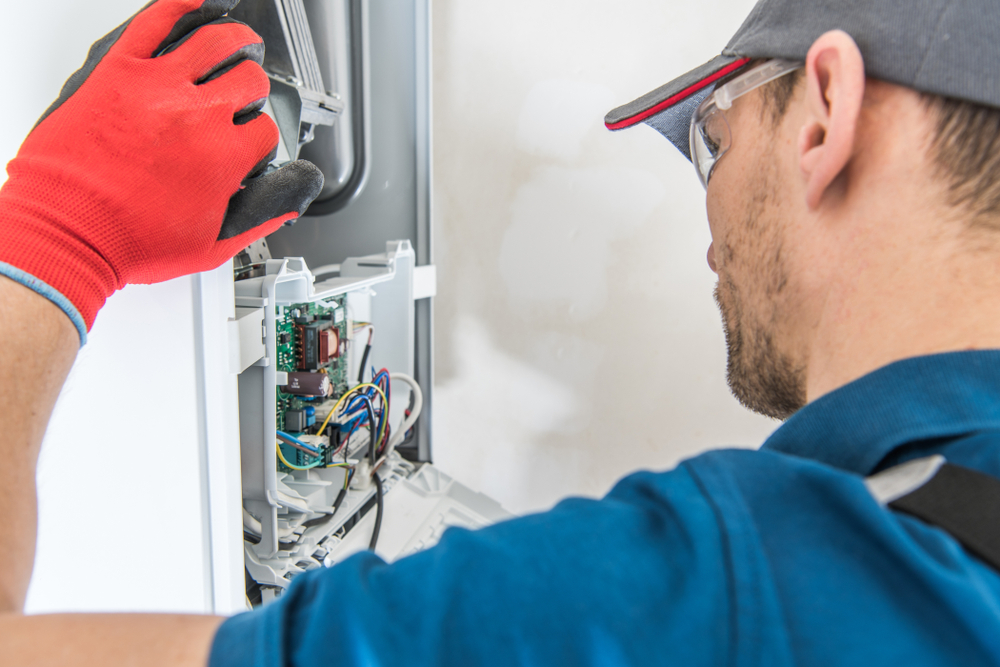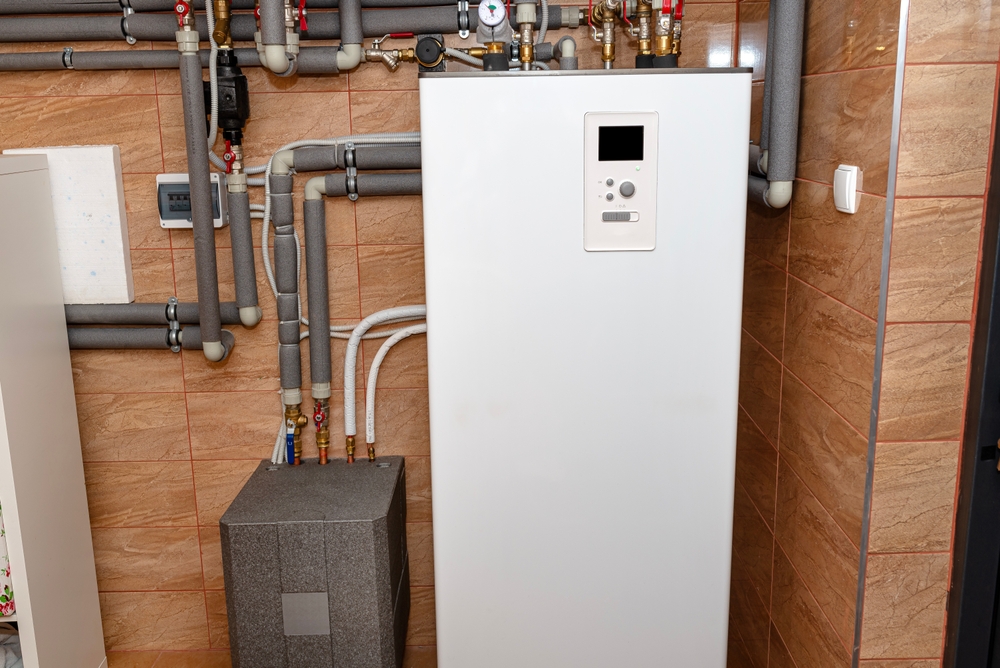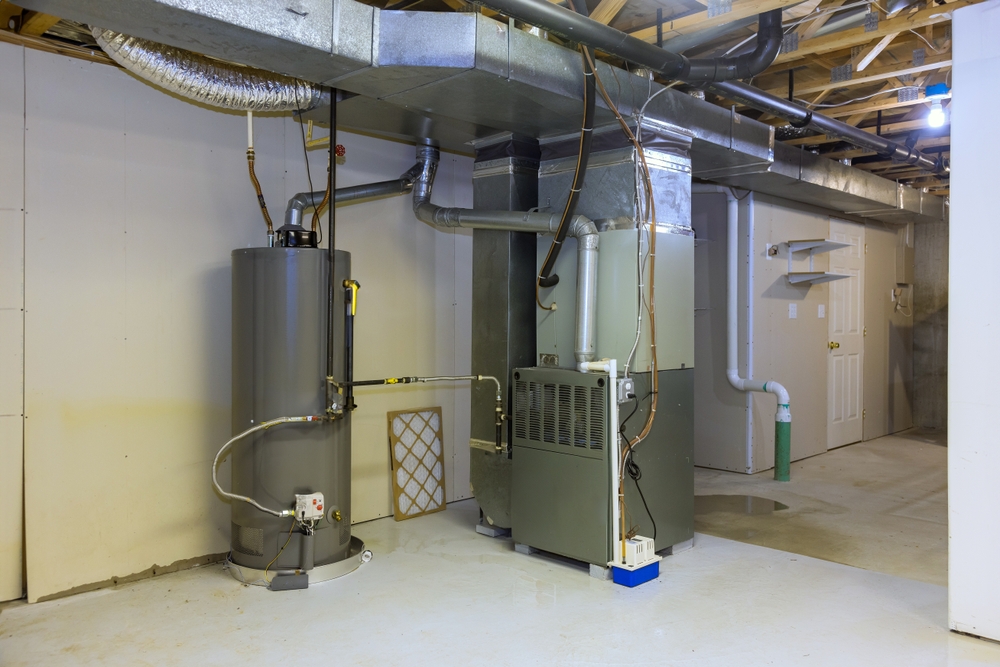Blog
6 Common Furnace Noises and What They Mean

Modern furnaces operate quietly — but not noiselessly. When turned on, normal furnace noises include the humming of the blower motor as it pushes warm air into your ductwork, the soft whoosh of burners igniting on and off, and other subtle noises as various components work together to create heat. These things should sound familiar, comforting even.
On the other hand, if those ordinary background noises transform into harsh roars or inexplicable pops and squeals, don’t ignore them; they could be a cry for help from your heating system. If left unaddressed, these warning signs can escalate into major issues requiring emergency furnace repair.
Let’s look closer at different furnace noises and what they mean so that you know exactly what to do if you hear them in your home. In the following guide, we’ll review characteristics of common furnace sounds and provide troubleshooting advice for each so that you can avoid being stranded in the cold the next time your furnace threatens to break down.
Common Furnace Noises and Their Potential Causes
1. Banging or Popping
Description: Sudden, loud noises, similar to metal popping.
Potential Causes:
- Delayed ignition
- Expanding/contracting ductwork
- Igniting pockets of gas buildup
- Dirty furnace burners
Recommended Action: Call a furnace repair technician for inspection immediately, as this could lead to fires or explosions if not addressed.
2. Squealing or Screeching
Description: High-pitched, sharp sounds.
Potential Causes:
- Worn-out blower motor belts
- Faulty bearings
Recommended Action: If your furnace has a belt-drive blower motor, replace the belt and lubricate moving parts. If you don’t know how to do this (or don’t feel comfortable doing it yourself), call an HVAC repair technician for assistance.
3. Rattling
Description: Clanging sound of loose components.
Potential Causes:
- Loose panels or screws
- Frayed or cracked fan belt
- Cracked heat exchanger
Recommended Action: Tighten any unsecured parts, such as loose bolts, screws, or panels. Contact a furnace repair professional in cases of heat exchanger damage, as this can develop into a more serious issue.
4. Booming
Description: Loud crashing sound when the furnace starts up.
Potential Causes:
- Delayed ignition of gas
- Dirty burners, causing gas buildup
Recommended Action: Schedule a professional furnace inspection immediately, as the buildup of flammable gas can be dangerous.
5. Humming
Description: Low, constant whirring sound.
Potential Causes:
- Normal motor operation (if the humming is soft)
- Blower motor issues (if the humming is loud)
Recommended Action: If your furnace is making a humming noise that’s louder than usual, check the blower motor for issues. An unbalanced blower motor can vibrate, possibly explaining the unusually loud humming sound.
6. Chirping
Description: Sounds similar to birds chirping.
Potential Causes:
- Furnace parts warming up after long periods of inactivity
- Misaligned blower wheel
- Worn bearings
Recommended Action: If persistent, have a heating repair professional adjust or lubricate any worn or misaligned parts.
Why It’s Important to Address Furnace Noises
Your furnace is a complex machine, meticulously designed to convert a fuel source into heat and disperse warmth throughout your indoor living spaces. Every sound it makes is purposeful, so when you hear inexplicable or loud noises coming from your heating system, it’s likely an indicator that something isn’t functioning right.
For this reason, if you hear any of the bizarre warning signs outlined above, schedule a professional furnace inspection as soon as possible. Handling these furnace noises sooner rather than later is important because it:
- Prevents further furnace damage, avoiding higher repair costs
- Safeguards from potential safety hazards
- Improves energy efficiency and lowers energy bills
What to Do If Your Furnace is Making Unusual Noises
Generally speaking, if your furnace is making strange noises, there are a handful of basic troubleshooting steps you can take to eliminate the problem —or, at the very least, identify its source.
- As a safety precaution, always start by shutting off the furnace, especially if you smell gas or burning odors
- Check the air filter — clean and replace it, if necessary
- Check your fuse box for tripped breakers or blown fuses
- Tighten any loose panels, screws, or other components
- Lubricate worn bearings or other moving parts
Note: If you don’t know how to perform any of these steps or don’t feel comfortable doing them yourself, call an HVAC professional. Especially in hazardous situations where you risk fire or electric shock, it’s important to rely on furnace experts who possess the right know-how and protection for the job.
The Takeaway
Now that we understand the different furnace noises and what they mean, it’s time to reinforce the importance of scheduling regular furnace maintenance to prevent noise-related issues from happening in the first place. At T. Webber, we specialize in furnace replacement and installation, which means we also know exactly how to repair and maintain these complicated machines before they break down.
If your furnace is making strange noises, don’t ignore them. Contact T. Webber for knowledgeable HVAC inspection and furnace repair.





